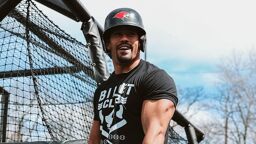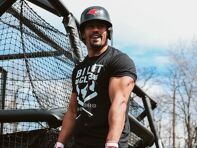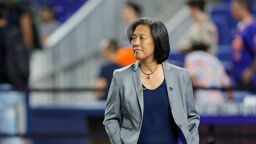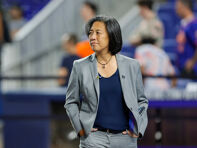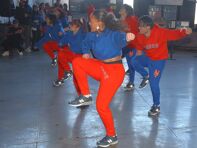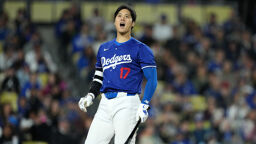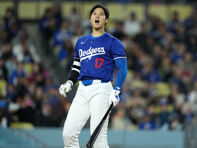When I was a kid, one of my favorite days on the calendar was when pitchers and catchers reported to Spring Training. There was nothing that brightened my mid-February mood more than seeing brand new footage of baseball players working out in Arizona and Florida.
That this often proved to be the biggest highlight of the Cubs’ entire season didn’t settle in until later.
Now that I’m in my early forties, the phrase “pitchers and catchers” still makes my heart soar (And yes, Beavis, it sometimes makes my heart soar for entirely different reasons. After which I have to clear my browser history). It’s the kind of unofficial holiday where my baseball friends and I exchange emails just to express that we’re happy that this day exists.
Over the past few years, Spring Training has also become emotionally resonant because it’s a turning point when I can shift my attention from MLB’s offseason problems to the games on the field. However, to do so in this particular year without devoting significant attention to baseball’s toxic relationship with marginalized communities would be a huge mistake.
Now, as LGBTQ baseball fans, it’s actually been a relatively quiet winter, save for Thom Brennaman taking a job with Puerto Rico’s Roberto Clemente League. Let’s hope that this October, we can set MLB’s “Number of Years Without a Lead Broadcaster Dropping an Anti-Gay Slur into a Live Mic” counter all the way back to one.
But that uneventful few months for our community only means that we’ve got more time to devote to being good allies. And as the past month has made abundantly clear, we need to do what we can to make sure that the return of on-field action doesn’t obscure MLB’s serious problems with systemic misogyny and sexism.
It’s been a bad winter if you’re a fan of basic decency, or of the Mets. From ex-GM Jared Porter sending unsolicited dick pics to a female reporter to former manager Mickey Callaway being accused of lewdly propositioning five women to harassment revelations about coordinator Ryan Ellis, MLB has been rocked by repeated revelations of unseemly deeds emanating from its old boys’ club. And this isn’t just a Mets problem.

Obviously, sexual harassment should not be treated like it’s the same thing as homophobia as the two are different categories of awfulness. But the one thing they have in common is that each is rooted in a culture of unchecked straight white male privilege.
In other words: baseball clubhouses for the past 150 years.
Just as we justifiably fought back when that privilege reared its head, in the form of Brennaman dropping every homophobe’s favorite kind of f-bomb on the air, we must also join in the fight when it takes the form of Callaway sending shirtless selfies to multiple female reporters.
At this moment in time, one of the most important aspects of that battle is to make sure that this important story stays front and center, even as we begin to enjoy the game being played on the field. It’s the only way to ensure that MLB can’t just issue a statement of faux-concern, make cosmetic changes, and try to move on.
We have to keep the pressure on the sport’s power brokers to recognize that systemic privilege is one of the biggest problems in baseball. It’s the only hope that the game will begin the arduous process of addressing and changing that culture.
Especially because any baseball fan is all too familiar with MLB’s playbook for dealing with serious problems:
- What problem?
- I don’t see anything.
- Hey, look! Dingers!
- (Problem suddenly leaks to the media and becomes a national scandal)
- Suspend A-Rod
- Elect commissioner who ignored problem to the Hall of Fame

So yes, by all means, let’s celebrate the return of the game we love and the beginning of another 162-game epic novel of a season. But let’s not take our eyes off of the more important battle: ensuring a better and more inclusive future for all communities who love this sport so much.
If we continue to pressure the game to start addressing and changing the unsavory norms of its dominant culture, it’ll make baseball a better place for marginalized groups — including LGBTQ fans. And hopefully someday, out LGBTQ players, too.





